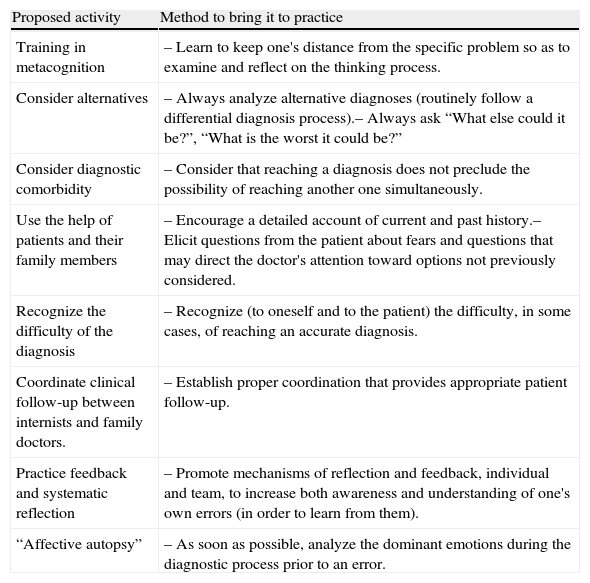A well-developed clinical interview makes it possible to adequately focus the diagnosis. However, cognitive psychology shows that mistakes are made when the persons face complex problems, such as those faced when making a diagnosis, especially if time or resources are limited.
The main cause of failures in clinical reasoning is using “cognitive shortcuts.” Among them, premature closure is a key factor triggering a diagnostic error. Cognitive errors are predictable and thus, it is possible to learn strategies to reduce or avoid them. Knowing the main features of cognitive shortcuts and identifying those automatically used is the first step toward preventing errors or minimizing their consequences.
Una entrevista clínica bien desarrollada permite orientar de forma adecuada el diagnóstico. Sin embargo, la psicología cognitiva muestra que las personas cometen errores cuando se encuentran con problemas complejos, tales como los que se enfrentan a la hora de hacer un diagnóstico, especialmente cuando disponen de poco tiempo o de recursos limitados. La principal causa de fallos en el razonamiento clínico es el uso de “atajos cognitivos”. Entre ellos, el cierre prematuro es un factor clave desencadenante de error diagnóstico. Los errores cognitivos son predecibles y, por tanto, es posible aprender estrategias para reducirlos o evitarlos. Conocer las características de los atajos cognitivos, e identificar los que se aplican de forma automática, es el primer paso hacia la prevención de errores o la minimización de sus consecuencias.
Article
Diríjase desde aquí a la web de la >>>FESEMI<<< e inicie sesión mediante el formulario que se encuentra en la barra superior, pulsando sobre el candado.

Una vez autentificado, en la misma web de FESEMI, en el menú superior, elija la opción deseada.

>>>FESEMI<<<






